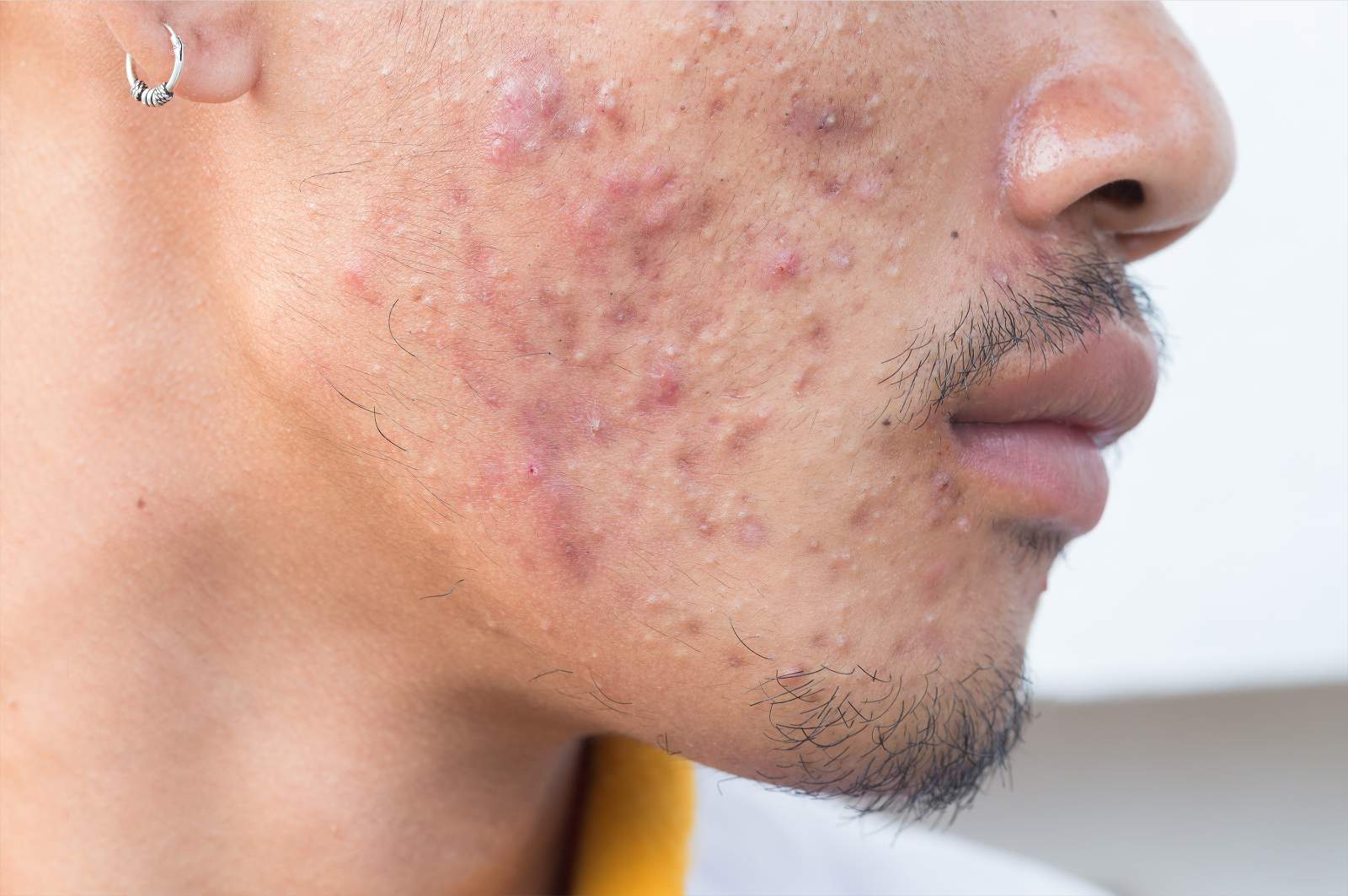What is Fungal Acne? Causes, Treatments, & Symptoms

If you’ve had a breakout that’s lasted for several days--or maybe even weeks or months--and you sat down behind your computer to try to figure out what was the cause of it, you may have stumbled on the term fungal acne.
But what is fungal acne? In recent years, the phrase has made its rounds across YouTube, Reddit, blog posts, and all through the Internet. Despite having the word “acne” in its name, fungal acne isn’t the kind of acne you commonly think about (“acne vulgaris.”) So what is it even? How do you treat it? Fortunately, the Stryx team is here to clarify the topic of fungal acne and tell you everything you need to know!
Fungal Acne: What is It?

Basically, fungal acne is an infection that lives in the hair follicles on your skin. It tends to show up as lots of small, relatively uniform pimples that might itch. Its scientific name is Pityrosporum folliculitis or Malassezia folliculitis,again referencing the follicles the infection lives in. While many people think that this may be caused by Biotin (spoiler alert: it’s not), fungal acne is actually caused by--you guessed it!--fungus.
What Causes Fungal Acne?
Unlike “regular” acne which is often caused by bacteria, fungal acne’s root problem lies in the yeast or fungus on your face. Almost everyone has this fungus, and your body generally is able to balance out fungi and bacteria on your skin...but not always. If it’s unable to, you may have an outbreak of fungal acne. While it can show up for various reasons, some of the more common ones that have been studied include the following.
Trapped Moisture
Finished a workout and kept your sweaty clothes on for too long? Or maybe you took them off and then wore them again a day later? That extra moisture can promote excess growth of the fungi that spent the last 24 hours growing in your clothes! Living in moist and humid environments where you sweat more often can also trigger fungal acne: in fact, the countries with the highest Google searches for “fungal acne” were Singapore and the Philippines--countries with extremely humid climates!
Tight Clothes
If you’re not giving your body enough circulation, you’re likely to increase the chances of excess sweat and over-production of moisture, meaning that you’re creating the perfect place for extra yeast growth.
Diet
That said, it’s not just about sweating. If you eat foods that are rich in carbs or too sweet, such as too much bread, pasta, and excessive dairy products, the fungus can feed off of that and grow stronger.
Fungal Acne Symptoms

Credit: AskMen
Fungal acne always shows up within your hair follicles. Generally, it’ll look like small pimples, and they tend to look quite similar. They’re often quite itchy, and can lead to skin irritation and cause whiteheads. That said, it can be difficult to tell entirely if it’s 100% fungal acne without a doctor’s visit, so it may be necessary to confirm that it is indeed fungal acne. That said, fungal acne tends to be itchy, while bacterial acne generally is not, and it’s usually roughly the same size.
Fungal Acne Location
Where can you break out? Fungal acne can often pop up on or around your back, arms, chest, and scalp, which bacterial acne may be less likely to do. That said, it can also show up around the T-zone on your face, and around your mouth as well.
Fungal Acne Causes Itching
The biggest difference between bacterial and fungal acne is that the latter tends to be extremely itchy. It can be difficult to resist the urge to scratch at it, making treatment more urgent.
Clusters
Another differentiator is that when you have fungal acne, it’s likely to show up in clusters, or a group, as opposed to just one or two pimples. This may mean that you might want to cover up the breakout with makeup if it’s too distracting!
How Do You Treat Fungal Acne

Credit: Healthline
Many people misdiagnose fungal acne and treat it with antibacterials or treatments for acne vulgaris, which at best, is ineffective, but could possibly exacerbate the situation. On top of going to your physician, follow these tips to help reduce your breakout.
Wear Looser Clothes
If you’re wearing clothes that restrict your airflow, opt for looser clothing. This will help you get more air circulation, reducing your chances of excessive sweating, which could increase your fungal growth.
Shower Regularly
Seriously, don’t skip that shower! Showering regularly can help get rid of any excess yeast on your body might have built up, reducing the chances of fungus buildup.
Use Anti-Dandruff Shampoo
Yes, that’s right. Dandruff is also caused by a close cousin of fungal acne, and since anti-dandruff shampoo has antimicrobial ingredients such as zinc pyrithione, using these as body washes when you have a breakout could help soothe your skin.
And finally, if you need a quick fix when you have a breakout on your face, check out our Concealer Tool! Best of luck.
References:
Holland, Kimberly. “What is Fungal Acne: How to Identify and Treat.” Healthline, 3 Sept. 2020, www.healthline.com/health/all-about-fungal-acne.
Friedman, Adam. “What is Fungal Acne and Why Do So Many People Think They Have It? GW School of Medicine & Health Sciences: Department of Dermatology, 30 July 2018, https://smhs.gwu.edu/dermatology/news/what-fungal-acne-and-why-do-so-many-people-suddenly-think-they-have-it
Leave a Comment